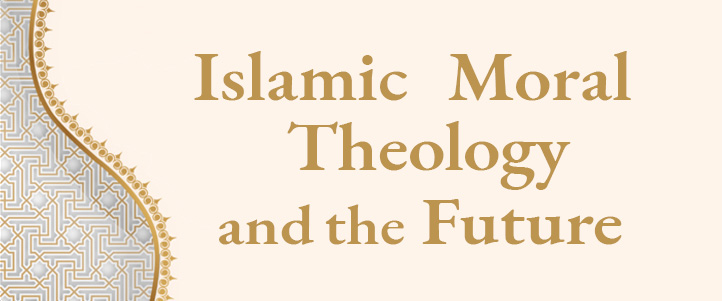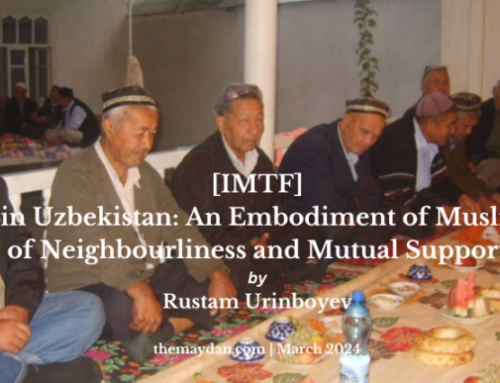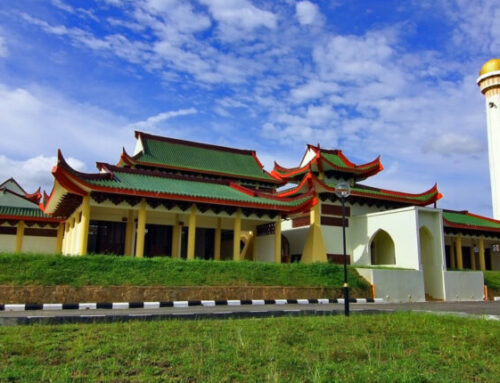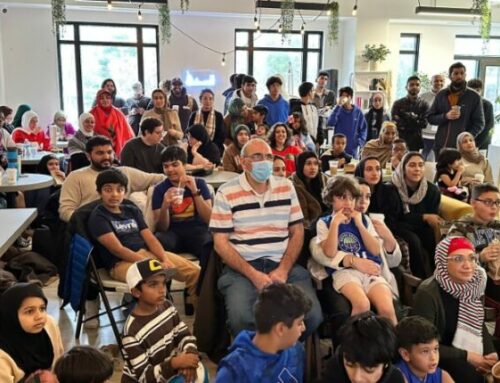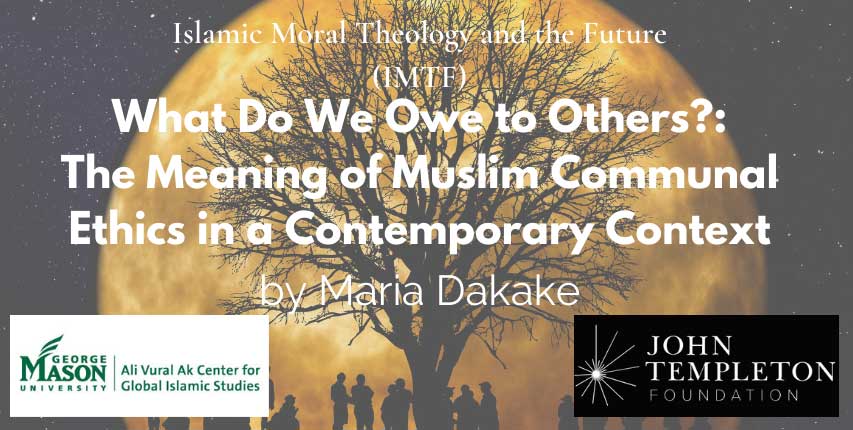
What Do We Owe to Others?: The Meaning of Muslim Communal Ethics in a Contemporary Context
Moral theology can be understood as the science of cultivating human virtue in relation to a recognized set of absolute, divine, or transcendent principles. Considered both theoretically and practically, the cultivated virtues are simultaneously a means of transforming and beautifying the individual self, and the ideal basis for ethical engagement with other selves, and the community at large. Islam, like most religions, recognizes that virtuous life is lived in community. Ideally, the community is meant serve as the edifying environment in which individual virtues can be developed and nurtured, as well as the arena in which they are practiced, tested, and refined. Such an understanding envisions a reciprocity and mutual responsibility between the individual and the community, whereby the moral community is supported by the virtuous practices of its individual members, while acting as a moral support for them. A related balance can be discerned regarding rights and responsibilities—both for the individual and the community. In Islamic legal tradition, this is reflected in the recognition of two kinds of obligations: those for which each individual is responsible (farḍ ʿayn) and those which can be fulfilled by a sufficient number of people on behalf of the community as a whole (farḍ kifāya). What meaning does this ideal conception of mutual individual and communal responsibility have today?
Meaning of Community from an Ethical Viewpoint
The obligations of self and community in an Islamic religious context overlap, but they can be helpfully divided into two types of mutual support: material and moral. The responsibilities for material support are located in the many forms of interpersonal charity and broader philanthropy that have always been part of Muslim life, from the alms (zakāt) obligatory upon every self-supporting individual, to the broader encouragement to charity (ṣadaqa) beyond this requirement, to larger philanthropic activities directed toward the community as a whole: constructing mosques, hospitals, orphanages, and schools, often through the legal practice of waqf, or charitable endowment. The ethical responsibility of providing materially for either individual others or for institutions that could serve communal needs is a notable feature of Muslim religious life, both past and present.
“The obligations of self and community in an Islamic religious context overlap, but they can be helpfully divided into two types of mutual support: material and moral. “
The Islamic concept of the moral support of individual and community is fundamentally encapsulated in the repeated Qur’anic exhortation to “enjoin the good and forbid the wrong”—a duty that the Qur’an sometimes places upon the Prophet specifically (Qur’an 7:157) or perhaps a subset of authoritative figures in the community (Qur’an 3:104), but also associates with individual believers (explicitly both men and women, Qur’an 9:71) and the community as a whole (Qur’an 3:110). The phrase is clearly open to interpretation, and leads to questions about how one defines “the good” or “the wrong”, and the lengths to which individuals may go in undertaking this duty. Naturally, the injunction is liable to political use and misuse, but it has remained a compelling moral (rather than political) principle for theologians as varied as the Muʿtalizites, who included it among their five classical theological principles, and Ibn Taymiyya (no fan of the Muʿtazila). Can this principle have value and meaning for Muslims living in either Muslim-majority or minority communities today? Can its moral value be considered independent of political or ideological entanglements, or even outside of its confessional boundaries? Can this Islamic principle speak beyond the Muslim community specifically, and contribute to larger discourses about the importance and ethics of community and communal obligation in general?
Defining Community
As the roots of an ethical discourse of communal responsibility, however, the Islamic principles discussed above beg the question of how the “community” as a site of moral obligation is defined. Writ large, the site of communal responsibility might be considered to be the universal Muslim umma; but as the umma spanned several continents and cultures, even from early times, this was, for sure, an imagined community. The arena in which moral obligation is regularly practiced must be a tangible community, and one can argue that it should be, first and foremost, local. The importance of responsbility to neighbors—that is, those in physical proximity to oneself—is an ethical orientation well-established in Islamic scripture and texts, from Qur’anic verses that consistently identify one’s neighbors among the proper recipients of charity, to Prophetic hadith about the greater responsibility one has to those who live closest to oneself.
“The example of early, multireligious Medina raises the question: to what extent do the Islamic principles of communal responsibility extend only to the Muslim community specifically?”
It is worth remembering that the first “umma” was located in a single city, Medina. When the Prophet and his followers first arrived in the city, it contained a multireligious and multiethnic population. The responsibility of Medina’s diverse inhabitants for one another and for the city that they shared was delineated in a well-known early document sometimes referred to as the “Constitution of Medina.” The example of early, multireligious Medina raises the question: to what extent do the Islamic principles of communal responsibility extend only to the Muslim community specifically? What are the moral and material obligations people living in any community, regardless of religious or other differences, owe to their neighbors? If there are moral or ethical principles that transcend particular religions and thus can be individually or collectively encouraged across a religious (or religious/secular) divide, is it possible to reimagine the moral obligation to “enjoin the good and forbid the wrong” in a pluralist environment? With regard to material obligation, zakāt was legally understood as a form of charity that circulated within the Muslim community and strengthened it; but charity as a moral obligation is defined less specifically in some Qur’anic passages. Some Muslims today, especially those living in Muslim minority contexts, have come to believe that even obligatory charity can be given to those in need outside of the Muslim community. Can Muslim principles regarding moral and material obligation to community be broadened to contribute to a larger, humanistic discourse about the responsibilities we owe to others regardless of religious, ethnic, or social differences?
Contemporary Issues and Dislocations in Community Formation and Obligation
Ethical discussions in modern contexts have tended to focus on the obligations of the community to its individual members—most importantly, on the establishment and protection of their individual rights and the maintenance of social conditions conducive to human flourishing, such as education and social welfare. Can the Islamic understanding of the need to balance individual and communal obligations, rights and responsibilities, add something meaningful to these contemporary ethical discourses—religious or secular?
“The question, ‘What do we owe to others?’…is the question that underlies all ethics, and today we need to ask this simple question in a more insistent way.”
The question, “What do we owe to others?” may seem simplistic and vague to the point of meaninglessness. But it is the question that underlies all ethics, and today we need to ask this simple question in a more insistent way. Some of the major crises of our present time—from the environmental crisis to COVID-19 (and the possibility of new pandemics)—cannot solely be addressed at the governmental or institutional level, as we have seen. They also require a collective commitment to the common good, and to the individual sacrifices necessary to achieve it. These issues have revealed very divergent views both between and within societies about where the line between communal/global responsibility and personal/national freedom and fulfillment should be drawn. These are not just political questions, but also moral ones. Can classical moral and ethical principles developed in religious contexts, like the Islamic, contribute meaningfully to these debates today?
Islam, like Judaism and Christianity, clearly establishes the importance of caring for one’s neighbor—that is, those persons who are not necessarily family, but who reside in proximity to one another, and ideally know and understand one another. These religious and ethical traditions, however, developed in worlds very different from our own—worlds where one city or region was epistemologically “the whole world” for a large portion of the population. But who are our neighbors now? If by neighbors we mean those we are able to contact and communicate with on a regular basis, then communication and transportation technology have made nearly the entire globe our “neighbors”.
At the same time, our “shared neighborhoods” are often those that we construct (or that are algorithmically constructed for us) online, on social media platforms that allow us to dwell virtually in a world where people share our views and see the world through similar lenses. As more of our social life takes place online, our physical neighborhoods, even our extended families, are often no longer the place where we look to find people who share our values and our views of the world. And yet, they are often those to whom we remain most physically present. Is it physical proximity itself, or the corresponding assumption of shared values, that lie at the heart of religious conceptions of our responsibility toward our neighbors? Does the rise of social media, which creates new virtual communities, while sometimes generating alienation from neighbors in physical communities, require us to rethink the value of those physical communities?
“Some of the major crises of our present time…require a collective commitment to the common good, and to the individual sacrifices needed to achieve it.”
How is the idea and importance of living in community, forming community, and responsibility to community changed—either reinforced or compromised—by recent developments and new challenges in contemporary life and the ways in which we understand and engage our “community”? How might considering these issues in light of Muslim notions of community and individual human beings’ responsibility to it contribute to these ongoing debates and conversations both within and beyond the Muslim community? In this first set of posts for our roundtable blog on virtue and ethics in the communal context, scholars will address these questions, and perhaps raise others, as we explore the relevance of Muslim understandings of community, communal responsibility, and the virtue of community for life in our contemporary world.
Maria Dakake is Associate Professor of Religion at George Mason University. Dr. Dakake researches and publishes on Islamic intellectual history, Quranic studies, Shi`ite and Sufi traditions, and women’s spirituality and religious experience. She is one of the general editors and contributing authors of the The Study Quran (HarperOne, 2015), which comprises a translation and verse-by-verse commentary on the Qur’anic text that draws on the rich and varied tradition of Muslim commentary. Her most recent publication, The Routledge Companion to the Qur’an (2021), is a co-edited volume with 40 articles on the Qur’an written by contemporary scholars working from different methodological perspectives. She is currently completing a monograph, Toward an Islamic Theory of Religion, and working on a selective translation of the Qur’an commentary written by the 20th century Iranian female scholar, Nusrat Amin.

